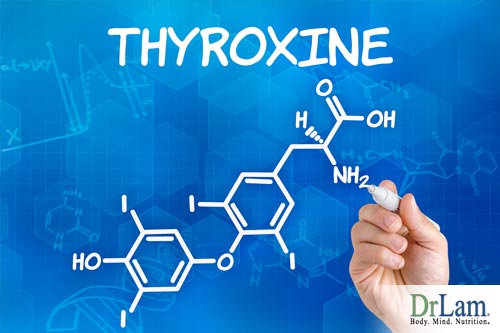
 To have a proper understanding for what your body needs and how it should be treated, it is necessary to first understand the basics of metabolic health. Our metabolism is responsible for maintaining the health and life of our bodies. There are a few main functions that take place which, though separate, come together to work in conjunction to keep our bodies running properly.
To have a proper understanding for what your body needs and how it should be treated, it is necessary to first understand the basics of metabolic health. Our metabolism is responsible for maintaining the health and life of our bodies. There are a few main functions that take place which, though separate, come together to work in conjunction to keep our bodies running properly.
A simple definition of metabolism is that it is a set of chemical transformations within the cells of living organisms. There are three main purposes of metabolism and they include the conversion of food into energy, building that same food into proteins and lipids, and the elimination of waste. There is a system which is comprised of organs, hormones, enzymes that work together to ensure that the conversions happen succinctly and efficiently.
When there is just one aspect of the metabolic health system that is not properly synchronized or acting in dysfunction, the consequences can be severe. There are things that you can do to help control your metabolic health function and it is imperative to be aware of how it can be accomplished.
There is a tried and true statement that is often made which says that you are what you eat. From time to time, there are commonly parroted colloquialisms which have stuck around because of their merit and this one falls into that category.
When considering metabolic health and nutrition, it is evident that there are consequences to the general consumption or overconsumption of certain types of foods. Not everyone has the same reaction to nutritional intake so, when analyzing your individual diet, be diligent in monitoring the effects of what you’re eating on your metabolic health. There are a multitude of issues that can develop from improper nutritional intake, though some effects may not be entirely due to your diet.
Your thyroid is a small, butterfly shaped, gland in the front of your neck which produces hormones. Thyroid hormones have a large impact on metabolic health as it directly affects the speed of your muscles, liver, brain, and heart. The thyroid is controlled and regulated by the pituitary gland, which is located at the base of the brain. It is necessary that the communication between the pituitary gland and the thyroid is efficient and balanced because there are problems that can arise within your metabolic health from dysfunction between these two important elements.
Some of the symptoms of an underactive thyroid are fatigue, slow heart rate, weight gain that is not linked to diet, and poor circulation which results in a lack of ability to regulate body temperature. These are not things to be taken lightly because they can cause a person to experience continued struggles with their metabolic health over time.
 The major thyroid hormone that is secreted by the thyroid gland is called thyroxine, and is commonly referred to as T4. To be useful in the body, this T4 is converted to triiodothyronine or T3 by the removal of the iodine atom. This transformation mainly occurs in the liver and the brain. The production of T4 is regulated by another hormone which is produced in the pituitary gland referred to as thyroid stimulating hormone or TSH. The pituitary gland will analyze blood levels of T4 and produce TSH as necessary to maintain what is sees as proper T4 blood ratios.
The major thyroid hormone that is secreted by the thyroid gland is called thyroxine, and is commonly referred to as T4. To be useful in the body, this T4 is converted to triiodothyronine or T3 by the removal of the iodine atom. This transformation mainly occurs in the liver and the brain. The production of T4 is regulated by another hormone which is produced in the pituitary gland referred to as thyroid stimulating hormone or TSH. The pituitary gland will analyze blood levels of T4 and produce TSH as necessary to maintain what is sees as proper T4 blood ratios.
There are two ways in which we can ascertain whether or not there is a dysfunction in metabolic health when concerning thyroid activity.
The first way is to do a qualitative analysis of what you are experiencing to see if there is a possible link to high or low thyroid activity. Symptoms of low thyroid function includes low body temperature, fatigue, slowed bowel movement, weight gain, etc. This can be a very useful technique because, when you are in touch with how you feel, nobody knows your body as well as you do. If something is wrong, you are most likely to be the first to know about it. This concept of qualitative analysis should involve an experienced professional for best results.
If you are concerned that your metabolic health is being damaged by your thyroid function, you should contact a professional for the second method of analysis – laboratory tests.
There is something called a thyroid blood test, a very simple procedure, which tests the levels of hormones present in the blood that were initially produced by the thyroid gland. Sometimes tests are complicated and the results are unsure, but in this case it is relatively definitive as to whether or not imbalances of thyroid hormones are present.
The free T3 test is the most commonly used test to determine whether hyperthyroidism is present. If a person has hyperthyroidism, they will have above normal levels of free T3 in their blood. This works fairly well for testing hyperthyroidism. However, this is not the case in hypothyroidism because if there is a problem, this is the last test that would conclude an abnormality. TSH would be low in that case.
Being hyperthyroid is a symptom. The underlying cause must be found and treated for the thyroid to return to normal. It could be cancer or simply over-consumption of kelp or iodine. The main purpose of the diet is to avoid foods which contain iodine because iodine is one of the essential elements involved in T4 hormone creation. A low thyroid function result also needs focus on the root to find out the problem before embarking on treatment. It can be due to thyroid gland malfunction (also called primary hypothyroidism), or factors outside the thyroid gland leading to low thyroid function (also called secondary hypothyroidism). Stress is a common factor in the genesis of secondary hypothyroidism.
 The system through which our bodies cope with and handle stress is relatively complex. This is known as the NeuroEndoMetabolic (NEM) Stress Response, which is essentially a complex web of systems and organs which link together to form a functional network.
The system through which our bodies cope with and handle stress is relatively complex. This is known as the NeuroEndoMetabolic (NEM) Stress Response, which is essentially a complex web of systems and organs which link together to form a functional network.
One of the many complaints that those who are under high levels of stress often reference is exhaustion and poor physical condition. As it turns out, there might be contributing factors that we are able to control which can help us reduce these symptoms. There is a cyclical theme regarding many of the issues associated with anxiety. People become stressed and experience high toxicity, depression, and lethargy. A typical response is to run to something that can make us feel better quickly. Often these choices are inferior and self-damaging.
An effect of high stress levels is a disruption of the hypothalamic-pituitary-adrenal (HPA) axis. When your adrenal glands are placed under large pressure to produce hormones in response to stress, they disrupt the conversion of T4 to T3. The main reason for this is because stress causes high levels of cortisol production, which contributes to down line inflammation and therefore disrupts thyroid hormone conversions, damaging metabolic health.
When a person is experiencing high levels of inflammation due to stress, there is a suppression of thyroid receptor site sensitivity. This means that even though your body might be producing enough T4 and effectively converting it to T3 so that you have sufficient blood hormone levels, you can still fall victim to symptoms of hypothyroidism. Laboratory tests such as TSH, free T4, and free T3 levels may appear to be normal.
There are more people than ever who are now recognizing the fact that there is a link between stress, depression, and adrenal fatigue (AF). People who suffer from AF are often plagued with other ailments that are not always directly relatable to their adrenal issues. When your body is subjected to large amounts of stress, the responsibility to respond to these negative variables is often put onto the adrenal glands. The adrenal glands are the workhorse of the stress response. If you are experiencing stress on a continual basis or suffer from other issues like depression, there is a high probability that you are suffering from Adrenal Fatigue Syndrome (AFS).
When the adrenal glands are placed under high burdens of elevated stress, they can often fail to respond in ways that are advantageous to proper health. The adrenal glands control inflammation, immunological responses, and even play a part in regulating metabolism, so there is a high risk level when they aren’t functioning as they should.
 Because high levels of inflammation have a direct correlation to T4 to T3 conversion, it is necessary that AF is either kept under control or reversed. That may sound like a simple solution, but it is not easy for everyone. Changes should be made slowly when they concern our lifestyle habits and diet. This is the case because sudden changes to our bodies can have adverse effects on someone who is already weakened by AF or even adrenal exhaustion.
Because high levels of inflammation have a direct correlation to T4 to T3 conversion, it is necessary that AF is either kept under control or reversed. That may sound like a simple solution, but it is not easy for everyone. Changes should be made slowly when they concern our lifestyle habits and diet. This is the case because sudden changes to our bodies can have adverse effects on someone who is already weakened by AF or even adrenal exhaustion.
Returning our focus onto T4 to T3 conversion; when the body is not properly utilizing or producing these thyroid hormones, the imbalance can cause tremendous issues. There are a range of diseases that cause varying levels of negative effects. It starts out as something that makes you gain a lot of weight because cortisol secreted by the adrenal glands is preventing you from properly converting T4 into the usable T3. This is one of the most common effects of AF on the thyroid hormone production process.
It is much more common for someone with AF to suffer from hypothyroidism than it is from hyperthyroidism because of the presence of excess cortisol that inhibits the absorption of T3. This is not to say that it is impossible for someone to have AF and hyperthyroidism; it is quite possible and can sometimes be the case. This can take place because of excess inflammation due to a weakened stress response and adrenal system.
When the body is exposed to excess inflammation, which is a common effect of AF, there are numerous consequences but we will focus on how inflammation affects the thyroid gland. During a period where there is so much inflammation in the body that it travels all the way to the thyroid, it can cause the thyroid gland to secrete excess hormones. This is something that may only last for a few weeks but in certain cases can be present for months, becoming detrimental to your metabolic health.
It is important to be aware of your body so that you can look for signals that it may be giving you and act to keep yourself in balance. Problems with thyroid and metabolic health are ten times more likely in women than in men. We’ve touched on some of the signs to look out for, such as exhaustion, but it is prudent to expand somewhat on the full range of possibilities.
Some of the other things that can be signs of thyroid issues are:
 Some of these can be caused by other problems that your body may be experiencing, such as AF, so it is important not to jump to conclusions regarding your metabolic health.
Some of these can be caused by other problems that your body may be experiencing, such as AF, so it is important not to jump to conclusions regarding your metabolic health.
If you are considering the possibility that you have a thyroid problem or that you are experiencing AF, it is a wise choice to meet with a health professional and discuss what you’re going through. There are always dangers involved with self-diagnosis of acute problems that could very well be avoided when a clinical perspective is brought in.
There are clearly strong links between metabolic health, thyroid conditions, and AF. It is apparent that stress plays a large role in developing a negative metabolic state when considering the thyroid. The important thing to note in all of this is that there are things that you can do to begin to heal yourself and when you feel as though you’ve exhausted all of your options, you can always seek professional help. Taking an active role in your health will bring you into the realm of recovery.
© Copyright 2017 Michael Lam, M.D. All Rights Reserved.

